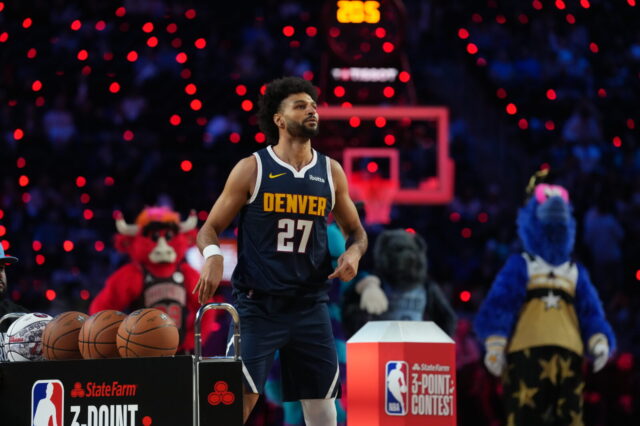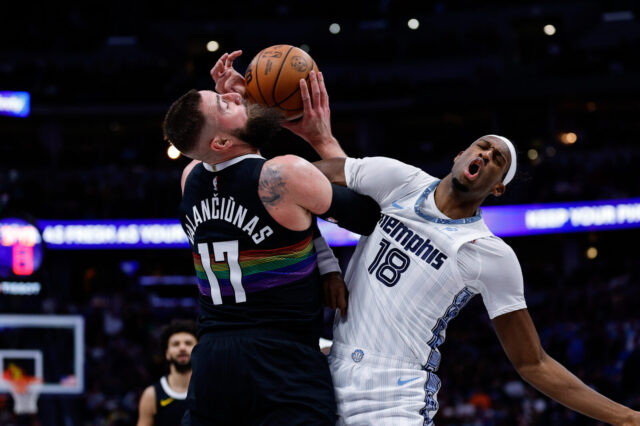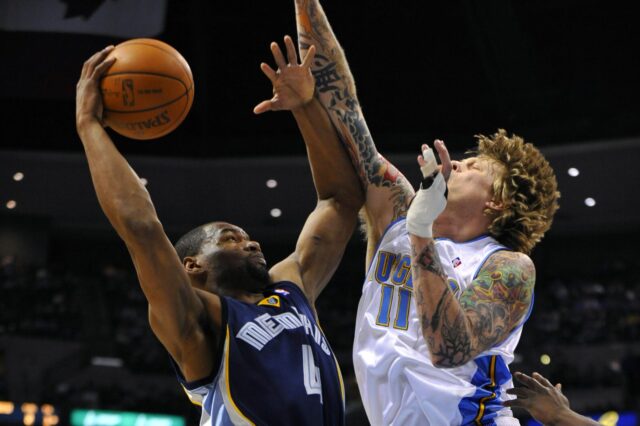Now that NBA commissioner David Stern has officially cancelled the first two weeks of the 2011-12 season, the common reaction I'm seeing from fans and fellow bloggers is that the fans are suddenly getting "screwed" in all this. I have news for you: the fans got screwed a long time ago.
From the dawn of the NBA lockout throughout the lockout itself, I have held to the mantra that NBA players – on average – make way too much money. This doesn't mean I'm siding with the owners in all this, because I'm not, but until a dramatic change takes place in average player salaries the NBA remains virtually inaccessible in a live form to the true basketball fan. And that's bad for the sport and the sport's long-term ambitions.
Lost in all the hullabaloo over basketball-related income, hard versus soft salary caps and player exemptions is the fact that the NBA has priced the true basketball fan out of its arenas and has done so for more than a decade now. As hyper-competitive owners made more and more bad deals to overpay for more and more bad players, someone had to foot the bill in the form of increased ticket prices.
For a while, that bill was paid by fans like you and me. Basketball-obsessed with a social calendar that comes second to the NBA schedule. But at some point, the prices got too high, our televisions got too good and we vacated the building altogether. I can’t tell you how many Nuggets fans I speak with on a regular basis who say “I used to have tickets” or “I used to go to 20 games a year” or (in the case of my parents, season-ticket holders for over 30 years) “I used to have two tickets to every game and now I only have two tickets to 10 games”.
The operative word being "used to."
In our wake came the corporations who gobbled up most of the good seats and all the luxury boxes. In our wake came the rich guy who brings his trophy girlfriend to the Lakers game and pays top dollar to a scalper to be there. In our wake came the seats given away to team sponsors and clients. And as a result, the NBA has had to adapt and market to that group – i.e. non-basketball fans.
The collateral damage from all this has been evident for more than a decade now: male cheerleaders, annoying mascots, night club music so loud that you can't hear yourself think, Snuggies being tossed into the stands, female escorts (read: hookers) taking up otherwise good seats, jingling key promotions, a public address announcer screaming into the microphone while pretending he's a rapper, America's Funniest Home Videos on the Jumbotron instead of basketball highlights, and so on.
And making matters worse, because NBA teams are so desperate to sell luxury boxes to those corporations and sponsors, stadiums have been (poorly) designed to push a bulk of those would-be regular fan seats far above the boxes. And thus, it's not worth seeing the game in person from an affordable seat! (Call me a snob, but I'd rather watch a Nuggets game on my giant flat screen television than from any seat above the luxury boxes at Pepsi Center.)
Nevermind the fact the NBA's antiquated, ineffective "revenue sharing" system all but ensures that 75% of the teams have no shot to win a championship whatsoever. Hence why nine franchises have claimed a ring since 1980 with just two – San Antonio and Detroit – not included in the country's top-ten in terms of metropolitan statistical area.
So as you can see, the fans got screwed a long time before David Stern shut down his sport for a few weeks in November.
I'm clearly naive, but I was hoping that this lockout would fix a lot of this. I was hoping that the lockout would bring about a sense of reality among the owners and the players and bring true basketball fans back to NBA arenas instead of leaving them at home in front of their television sets. But clearly that's not the case here.
I'm the last person to begrudge a fellow businessman from making a handsome profit. If the Nuggets can charge hundreds of dollars for a seat and fill the arena every night, I say go for it. Average basketball fans be damned.
But the ugly truth is that they can’t. Just like 20 or so other NBA cities can’t. And the owners know it. The official attendance numbers are phony as anyone who sat in an NBA arena not located in Los Angeles, Chicago, New York, Miami, Oklahoma City, Portland or San Antonio last season will tell you. And as soon as the Thunder, Blazers and Spurs suck again – and they will – their barns will be as half-filled as those seen in Indianapolis, Milwaukee and Sacramento. There simply isn’t enough money in the average NBA marketplace to fill NBA buildings in the manner that is needed to cover exorbitant player salaries. But rather than focus on an economic model that brings basketball die-hards into NBA arenas every night, the owners and players are squabbling over a losing hand.
When/if the NBA resumes, I guarantee that the Kenyon Martins of the league will still be grossly overpaid, the LeBron Jameses (a player who actually has a positive impact on his local economy) will be grossly underpaid and NBA tickets will remain grossly overpriced. There won't be a reasonable revenue-sharing system that ensures better competition among all 30 NBA markets, and NBA games will still feel like a Lady Gaga concert during which a basketball game happens to break out.
The fans have been, are getting and will continue to get screwed. That's just the way it is.
So when/if the lockout ends, the question then should be … if nothing changes, will suckers like me still pay to be there? Will we just stay at home and watch the games on television? Or will we no longer support the sport at all?
Maybe this is what David Stern, his fellow owners and NBA players should be spending the next few weeks thinking about.


